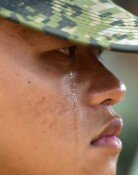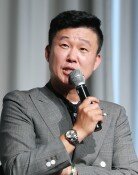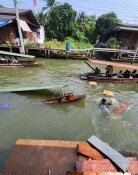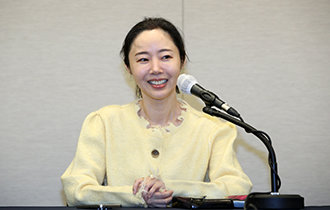North Power Struggle Ongoing: Expert
North Power Struggle Ongoing: Expert
Posted November. 01, 2006 03:01,
Internal conflicts and competition have become fierce not only between the North Korean political party and the military, but also within the military itself due to North Korean leader Kim Jong Ils military-first politics and divide-and-rule tactics, said Ken E. Gause, a researcher at the Strategic Studies Institute of the U.S. Army War College, in his recent publication.
Gause, who published, North Korean Civil-Military Trends: Military-First Politics for the Strategic Studies Institute said the meeting of the Supreme Peoples Assembly scheduled in March 2005 was called off following increased friction between the Korean Peoples Army (KPA) and the Korean Workers` Party (KWP) over the upcoming budget.
It was because the KPA insisted it continue to compile a wartime budget while the KWP argued that it should shift to a peacetime budget, Gause explained.
Such a shift in strategy, hardliners feared, would have necessitated a return to the six-party talks in order to continue bargaining for economic support in return for not developing a nuclear capability. It could have conceivably led in time to the renunciation of nuclear weapons, which would have brought the 10-year military-first policy to an end, Gause claimed.
Kim Il Song carried out five purges of the North Korean military. While he was able to rid the system of warlords, he did not cut deep to eradicate their patronage systems. In fact, today colleagues or descendants of these vanished warlords exist within the high command, he added.
Most likely, they will emerge within Kim Jong Ils inner core of supporters. As Kim Jong Il continues to isolate his power by narrowing the channels of communication and transferring lines of authority between bureaucracies, he is not only causing deep fractures within the leadership, but also bringing the security forces into conflict with each other, Gause forecasted.
Although the Army has traditionally dominated the North Korean military system, in recent years, there have been some indications that the North Korean Navys status has begun to rise, Gause analyzed. He claimed that unlike the Navy, the Air Force has not only become obsolete with limited access to spare parts and fuel shortages, but has hardly no influence on power politics.
In the late 1990s, the military allegedly was sold on the idea that Kim Chong Nam would take over from his father, as Kim Jong Il did from Kim Il Sung. Over the last few years, however, the situation has changed dramatically. His ties to his father apparently have been severed, Gause pointed out. Early speculation was that the military and security apparatus had thrown their support behind Kim Chong Nam, Kim Jong Ils oldest son, while Kims personal apparatus was trying to lay the foundation for anointing one of his two sons (Kim Chong Chol, Kim Chong Un), he added. And Gause added that, Kim Chong Nams ties to his father apparently have been severed.
Kim Chong Nams mother is Sung He Rim (died in May 2002) and Kim Chong Chol, Kim Chong Un are sons of Ko Yong Hui (died in June 2004).
sechepa@donga.com







